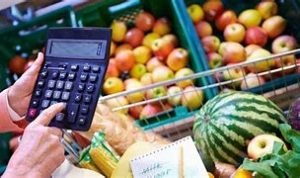
Umm Muhammed Umar
Experts say that South African consumers are going to be facing the toughest economic conditions in a decade. The price of electricity is to hike, the price of fuel to increase further, and there is a possibility of a further interest rate increase on the cards. At the same time, a new study has shown the South African workers are poorer than they were three years ago. Lumkile Mondi, senior lecturer at the WITS School of Economic and Business Sciences, discussed the impending economic dark days with Radio Islam .
Mondi said that the dire economic issue in South Africa was complex, and could not just be attributed to the Russia Ukraine conflict. He added that although covid infection numbers were currently low, the world was still in a pandemic. Mondi further said that the cost of the lockdown in South Africa, as well as former President Jacob Zuma’s mismanagement of the economy, and corruption, has had a huge impact on the economy. Nevertheless, the conflict in Europe will definitely impact South Africans, seeing that Ukraine was one of the worlds largest exporters of wheat, and Russia was an exporter of fossil fuels. meanwhile, with the added scarcity of jobs, Mondi projected a harsh period ahead for South Africans.
Mondi advised South Africans that if they were employed, to protect the job that they had. He also advised that they tighten their belts. He said, “the basic food items such as bread, flour, and others, but more importantly, also the traveling cost if you have got a car, or you have to use public transport, because everything is going to go up.” Mortgages might also prove problematic, as according to Mondi, the interest rate is going to climb faster than ever.
Regarding speculation that the price of petrol would jump to R40 per litre, Mondi said that he did not expect it to go that far. He said that the negotiations in Russia and Ukraine were likely to yield positive results, “So we may see, in the next few months, prices spiking, but I think in the medium to long term, will see prices stabilizing.” Some consumers, however, are said to already be using 60 percent of their disposable income on transport costs. Mondi said that it was very unlikely that the government would be subsidizing this. He said that even when “government does try to do good, as they tried to do on the pandemic, that a lot of that money ends in ‘people’s pockets’.”







0 Comments